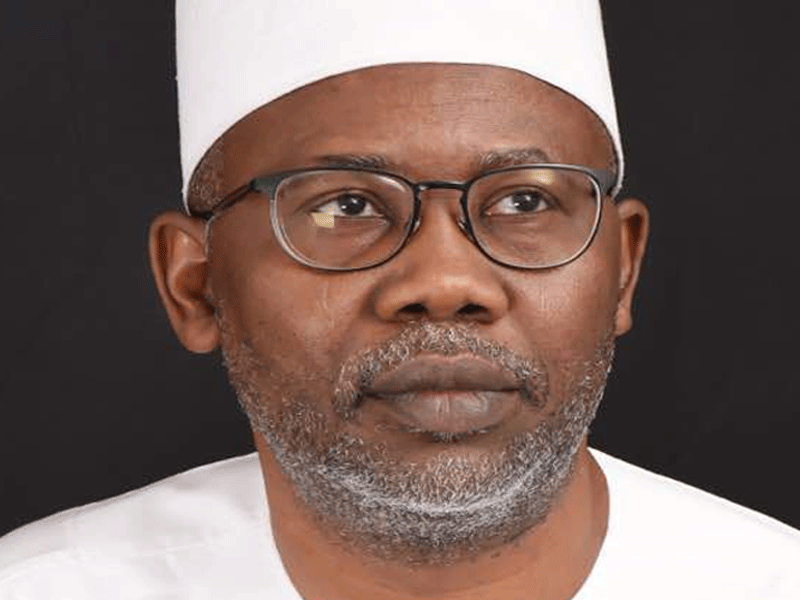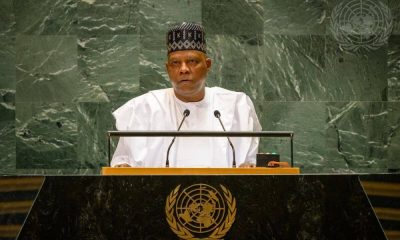By Mr. Mohammed Bello Adoke, CFR, SAN, FCI.Arb
Prosecutors hold a pivotal role in the administration of justice, a role that demands immense respect and recognition. They represent the state in criminal matters, responsible for presenting evidence to prove the guilt of defendants beyond reasonable doubt.
In discharging this duty, prosecutors must make key decisions regarding whether to file charges, what charges to file, and when to engage in plea bargaining. These responsibilities are governed by ethical principles that are fundamental in any civilized society. Prosecutors are not merely tasked with securing convictions at all costs; their ultimate objective is to achieve justice.

The Importance of Ethics in Criminal Justice
Justice, as often noted, is three-way traffic: justice for the victim, justice for society, and justice for the accused. Prosecutors are expected to be impartial and fair, ensuring that they adhere to legal procedures while safeguarding the rights of defendants. A breach of this sacred duty can lead to disastrous consequences not only for the defendant but for the entire society. That is why in developed legal systems, prosecutors are held to the highest ethical standards, and any violation of these standards is swiftly sanctioned.
A significant example of prosecutorial misconduct recently emerged from Italy, where two Milan prosecutors, Fabio De Pasquale and Sergio Spadaro, were sentenced to eight months in prison for professional misconduct. The media widely reported the incident, in which the prosecutors failed to file documents that could have supported the defense of Eni, an oil company accused in a $1.3 billion corruption case involving the acquisition of a Nigerian oilfield.
The omission of crucial evidence, including a video from a former Eni external lawyer, was found to be favorable to the defense. This sanctioning serves as a stark reminder of the ethical obligations prosecutors must uphold and the consequences of failing to meet those standards.
Nigeria’s judiciary has long recognized the critical responsibility prosecutors bear in presenting all relevant facts before the court. As far back as 1966, in the case of Chief Odofin Bello v. State (1966) LPELR-25291(SC), the Supreme Court of Nigeria reiterated the duty of the prosecution to disclose all facts. In the words of Justice Ademola JSC:

“We cannot do better than remind counsel that the prosecution must put all the facts at its disposal before the court and not hide any fact. Anything short of this is an attempt to conceal from the court any evidence favorable to the accused.”
This established legal precedent underscores the prosecution’s duty to ensure that justice, not merely convictions, is their guiding principle.
Prosecution: Guidelines for Federal Prosecutors
In Nigeria, the Guidelines for Federal Prosecutors, issued by the Attorney General of the Federation, provide clear directives to prosecutorial agencies. These guidelines, applicable to all state prosecutors, emphasize that the purpose of criminal prosecution is not to secure a conviction at any cost, but to present credible evidence in court that is relevant to the alleged crime. In line with the principles of fairness, the guidelines also require prosecutors to inform both the defense and the court of any evidence or legal authority that may be relevant to the case, even if it is unfavorable to the prosecution.
Prosecutors are also instructed to carefully evaluate the strength of their evidence before proceeding with a case. They are advised that “no prosecution should be undertaken where essential evidence of the basic elements of the offense is lacking.” Pursuing a case without a reasonable prospect of success wastes public resources and undermines public confidence in the criminal justice system, particularly in cases where acquittals are inevitable due to insufficient evidence.
Despite these clear guidelines and the judicial precedents that uphold them, certain prosecutorial agencies in Nigeria, notably the Economic and Financial Crimes Commission (EFCC), continue to engage in unethical practices. These include filing charges without sufficient evidence, pressuring defendants and witnesses, and concealing evidence that could exonerate the accused. This unethical conduct often goes unchecked, with little accountability for the prosecutors involved.
Personal Experience with the EFCC
I, too, have been a victim of prosecutorial misconduct. The EFCC filed multiple charges against me before the High Court of the Federal Capital Territory (FCT) and the Federal High Court in Abuja. These charges were related to the Malabu Oil and Gas Limited Settlement Agreement of 2006, a transaction for which I had already been absolved of wrongdoing by a judgment from Justice Binta Nyako of the Federal High Court in Abuja.
Despite this judgment, the EFCC filed unsubstantiated charges against me on the same transaction. Worse still, one of their prosecutors, Mr. Bala Sanga, was found to have pressured a witness to lie against me. It took the prosecution over four years to call their witnesses, and the court eventually ruled that I had no case to answer. In his ruling, Hon. Justice Kutigi expressed strong disapproval of the prosecution’s conduct:
“A charge must, therefore, not be filed for the simple sake of doing so or to soothe the ego of any person or institution.”
This ruling, and the conduct of the EFCC prosecutors, underscores the urgent need for prosecutorial reform and accountability in Nigeria.
A Wake-Up Call for Nigeria
The conviction of the two Italian prosecutors for failing to meet their professional and ethical obligations should serve as a wake-up call for Nigeria’s justice system. Prosecutorial misconduct cannot be tolerated, and stakeholders in the justice sector, including the Attorney General of the Federation, the Nigerian Bar Association (NBA), the Legal Practitioners Disciplinary Committee (LPDC), the Legal Practitioners Privileges Committee (LPPC), the Judiciary, and civil society, must take urgent steps to hold prosecutors accountable for breaches of their duties.
Ethical prosecutorial conduct is essential to maintaining the integrity of the justice system. Prosecutors wield enormous power, and with that power comes the responsibility to act in a manner that upholds justice, fairness, and the rule of law. When this responsibility is violated, the entire justice system suffers. Holding prosecutors accountable is not only necessary for protecting the rights of the accused but also for maintaining public confidence in the criminal justice system.
Prosecutors in Nigeria must learn from the example set in Italy, where breaches of ethical standards were swiftly and appropriately sanctioned. If Nigeria’s justice system is to evolve and gain the trust of the public, it must prioritize the ethical conduct of its prosecutors and ensure that justice, rather than mere convictions, remains the ultimate goal.









